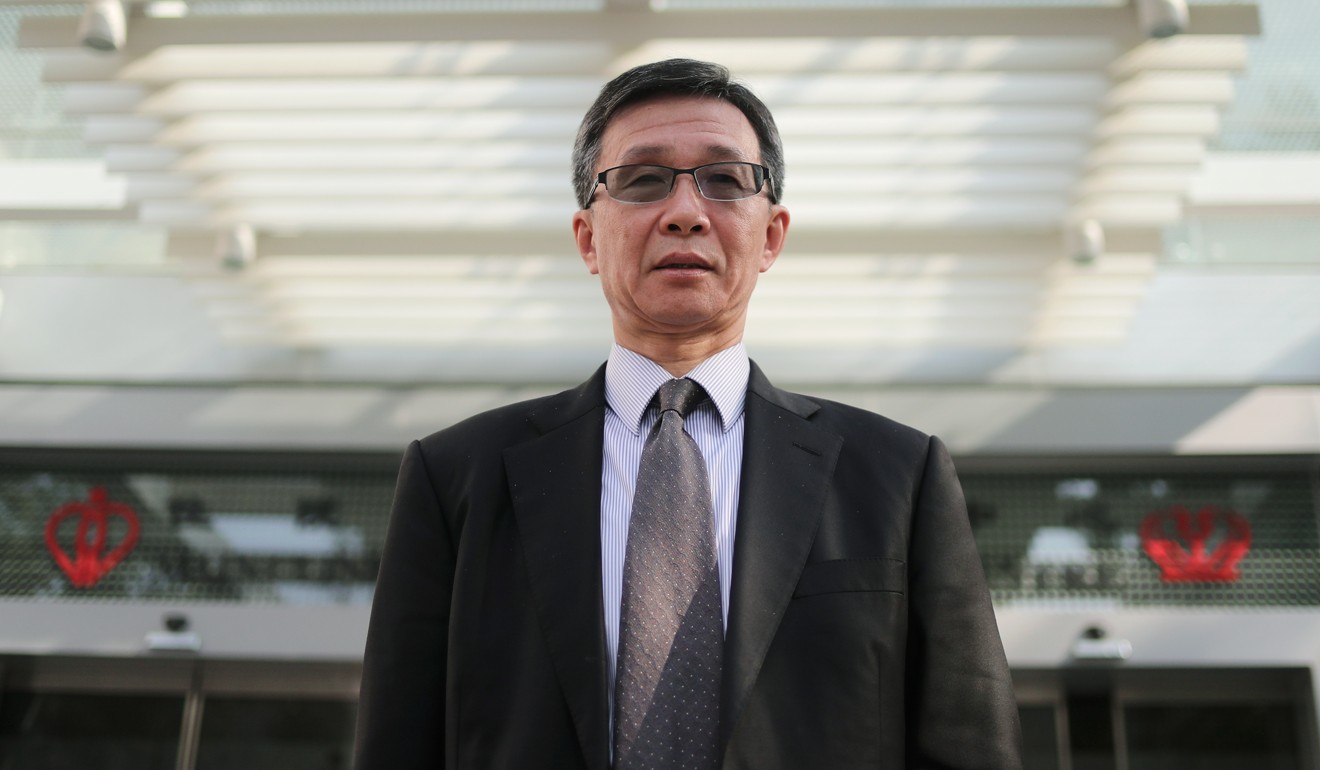Dr Fung Hong, 60, Sars survivor and former head of a public hospital
As the head of Prince of Wales Hospital in Sha Tin during the Sars epidemic, Dr Fung Hong fought the battle from a bed in an isolation ward. Fung, struck down by the disease himself, said he could not abdicate his role as a leader.
He can still recall the anxious faces of his colleagues 15 years later. Some 300 pairs of eyes stared at him during a staff forum at the beginning of the epidemic.
“I could see anxiety in those eyes,” Fung said. “I had never experienced such a scene before. But as the leader of a hospital, you need to control your emotions and face problems positively.”

Dr Fung Hong says Sars never left a mark on him. Photo: Winson Wong
He decided to hold a staff forum twice a day, one at lunchtime and the other after working hours. He did so to share the latest arrangements about the epidemic and answer queries from frontline staff on matters such as the supply of protective equipment. The forum ran until no one showed up.
As Fung could not attend meetings in person, professors Joseph Sung Jao-yiu and Sydney Chung Sheung-chee went to the ward every day and told him about the latest developments, he recalled, referring to two of the key figures in the Sars battle.
“We carried on our daily discussions on strategies [towards Sars].”
I could see anxiety in those eyes. I had never experienced such a scene before FUNG HONG, FORMER PRINCE OF WALES HOSPITAL BOSS
Although his Sars symptoms were not grave, Fung also experienced conditions such as shortness of breath during his three-week stay in hospital.
After the epidemic, Fung became the first chairman of the Sars Mutual Help Association, a patients’ group providing assistance to survivors.
A keen runner, he still takes part in half-marathons and 10-kilometre races every year. Though his running times have not been as good since Sars, he put it down to his busy working schedule.
“I’m a rather positive person and Sars didn’t leave a mark on me,” Fung said.
He left the Hospital Authority in 2013 and is now spearheading the development of a new private teaching hospital set up by Chinese University of Hong Kong as its chief executive officer.
Fung said a major epidemic would require the efforts of the city’s entire health care system to cope.
Looking back, he said both the system’s hardware and software have improved, which could allow the city to cope with another epidemic.
“Now every hospital is equipped with isolation facilities,” Fung said. “A quicker diagnostic method also allows us to identify a virus within a day, while in the past it took a few days.”
An improved communication system also allows a faster response if a serious event emerges, he noted.
This article appeared in the South China Morning Post print edition as: The children of victims have not been forgotten





 Reply With Quote
Reply With Quote